|
Books Should Be Free Loyal Books Free Public Domain Audiobooks & eBook Downloads |
|
|
Books Should Be Free Loyal Books Free Public Domain Audiobooks & eBook Downloads |
|
Fiction |
|---|
|
Book type:
Sort by:
View by:
|
By: Torquato Tasso (1544-1595) | |
|---|---|
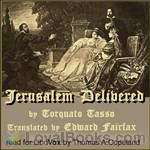 Jerusalem Delivered
Jerusalem Delivered
The First Crusade provides the backdrop for a rich tapestry of political machinations, military conflicts, martial rivalries, and love stories, some of which are complicated by differences in religion. The supernatural plays a major role in the action. Partly on this account, and partly because of the multilayered, intertwined plots, the poem met with considerable contemporary criticism, so Tasso revised it radically and published the revision under a new name, La Gerusalemme Conquistata, or "Jerusalem Conquered," which has remained virtually unread, a warning to authors who pay attention to the critics... | |
By: Paul Leicester Ford (1865-1902) | |
|---|---|
 The Great K and A Train Robbery
The Great K and A Train Robbery
In this short novel the narrator is a superintendent on the K. & A. railroad, sometime in the late nineteenth century. The train is robbed somewhere in the Arizona desert. Various adventures involve this young superintendent. Romance is provided by a comely passenger. | |
By: Margaret Widdemer (1884-1978) | |
|---|---|
 Rose Garden Husband
Rose Garden Husband
This novel was written by Margaret Widdemer, who won the Pulitzer prize for her collection of poetry in 1919. Phyllis is a 25-years-old children's librarian. She is good at her job. Yet when she sees a girl from her hometown with two children, she discovers she wants more. She marries an invalid who is expected to die. Would she find the love and sense of belonging she craves for? And would he really die? Note: This book is in the public domain in the USA. The author died in 1978 so may still be protected by copyright in many other countries. | |
By: Barry Pain (1824-1928) | |
|---|---|
 If Winter Don't
If Winter Don't
Barry Pain's parody takes a sharp knife to ASM Hutchinson's best selling novel 'If Winter Comes'.We follow the professional and marital decline of long suffering (and loving it), Luke Sharper, as his marriage to Mabel flounders while his love for Jona flourishes. It could only end in tears.....Or could it? ( | |
 Marge Askinforit
Marge Askinforit
A rollicking parody of the Margot Asquith memoirs, in which Pain’s character, Marge, beguiles us with the most personal details of her dysfunctional family, and delights in relating every cringing, if not wholly accurate, minutiae of her exciting private life. | |
By: Julian Street | |
|---|---|
 American Adventures
American Adventures
AMERICAN ADVENTURES, A SECOND TRIP ABROAD AT HOMEBY JULIAN STREETCHAPTER IHad my companion and I never crossed the continent together, had we never gone abroad at home, I might have curbed my impatience at the beginning of our second voyage. But from the time we returned from our first journey, after having spent some months in trying, as some one put it, to discover America, I felt the gnawings of excited appetite. The vast sweep of the country continually suggested to me some great delectable repast:... | |
By: Maud Lindsay (1874-1941) | |
|---|---|
 Story-teller
Story-teller
Are you a story teller? Almost all of us are, you know. Well, these 12 stories were written by Maud Lindsay to be told by someone who can weave the magic thread of speech into a performance that will hold the children spellbound. And we don't need to be perfect, just willing to tell a story; that is really all children ask, someone willing to tell a story. 8 of Librivox's Story tellers have volunteered to tell these enchanting tales (and sometimes sing the sweet little melodies that are included... | |
By: Margaret Gatty (1809-1873) | |
|---|---|
 Aunt Judy's Tales
Aunt Judy's Tales
This is a collection of six short stories by Margaret Gatty, writing as Mrs. Alfred Gatty. All told by 'an elder girl' in a large family to the 8 little ones gathered around. "There is not a more charming sight in the domestic world, than that of an elder girl in a large family, amusing what are called the little ones. "How could mamma have ventured upon that cosy nap in the arm-chair by the fire, if she had been harassed by wondering what the children were about? Whereas, as it was, she had overheard No... | |
By: Alec John Dawson (1872-1951) | |
|---|---|
 Finn The Wolfhound
Finn The Wolfhound
Dawson published over thirty books, the one best remembered today probably being the animal adventure story Finn the Wolfhound (1908)…. His own dog Tynagh and her son Gareth, who was described as the largest and finest specimen of his breed to date, served as the models for Tara and Finn in Finn the Wolfhound (1908). This is probably Dawson’s best-remembered and certainly his most frequently reprinted work: Finn, a champion Irish Wolfhound, is taken from England to Australia where he undergoes a series of adventures, being exhibited as a wild animal in a circus and escaping to live in the outback before eventually finding his old master and saving his life. | |
By: Melville Davisson Post (1869-1930) | |
|---|---|
 Dwellers in the Hills
Dwellers in the Hills
Ward was laid up after a mysterious accident when Woodford, a rival cattleman, demanded 600 head be delivered within 3 days under a contract that the two had entered into. The price had since dropped and Woodford was counting on Ward's inability to deliver to escape a loss on the contract. Woodford had chosen his time well. The cattle were far to the south across the Valley River and Ward had no choice but to send his brother, Quiller, to fetch the stock. A lot could happen on such a long trip as Quiller leaves childhood behind and learns lessons he will never forget about the world of men... | |
By: Henry Beston | |
|---|---|
 The Firelight Fairy Book
The Firelight Fairy Book
One pleasant summer day, as the fairy-tale lover sat reading a book beneath the low spreading branches of an oak tree, he heard a hum of wings, and looking up startled from his book, he discovered the Fairy Goldenwand standing close by. "Are you still seeking new fairy tales?" said the Fairy Goldenwand. "Yes," said the reader. "Will you write them down if I tell you some really new ones?" said the Fairy. "Oh yes, indeed," said the reader. "And I'll put them into a book;..." "Oh, that will be fine!" said the Fairy Goldenwand... | |
By: Walter W. Bryant (1865-1923) | |
|---|---|
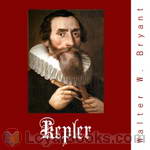 Kepler
Kepler
This biography of Johannes Kepler begins with an account of what the world of astronomy was like before his time, then proceeds to a look at his early years. Two chapters deal with his working relationship with Tycho Brahe. These are followed by a look at Kepler's laws and his last years. | |
By: Homer Eon Flint (1888-1924) | |
|---|---|
 The Lord of Death and the Queen of Life
The Lord of Death and the Queen of Life
A doctor, an architect, an engineer, and a geologist step into a space car. In their new invention, they set off on an expediton to Mercury, planning to visit Venus on the return voyage. On Mercury they find a strange city eerily abandoned. Sculptures of giant figures alarm them. In a building they discover a machine. The engineer gets it running, and blaring out of the machine a thundering voice speaking Mercurian begins to sound in a way that conveys to them that it is telling a story. After an enormous effort the men translate the audio book... | |
By: Don Marquis (1878-1937) | |
|---|---|
 Danny's Own Story
Danny's Own Story
Danny is the proverbial basket-on-the-doorstep baby, found by Hank and Elmira Walters, a childless couple who welcome him into their home because they need a new topic over which to bicker. Bicker they do, and fight just as often, from the day they attempt to settle on a name, to the day eighteen years later, when Danny and Hank come to blows and Danny leaves home in company with Dr. Kirby, bottler and supplier of the miracle elixir, Siwash Indian Sagraw. For years Danny wanders aimlessly--from Illinois to Indiana to Ohio, back to Illinois, then into Tennessee and points south--sometimes in company with Dr... | |
By: St. George Henry Rathborne (1854-1938) | |
|---|---|
 Boy Scouts First Camp Fire
Boy Scouts First Camp Fire
The Silver Fox Patrol is out on their first camping trip! The boys, Thad the fill-in scout-master, Allan, Bumpus, Davy Jones, Smithy, Bob White, Giraffe and Step-Hen, are learning many new things about being scouts and about themselves. But when a bear invades the camp, their trip turns into an adventure that they will talk about for a long time! Herbert Carter is one of many pseudonyms used by St George Rathborne. | |
 Boy Scouts in the Blue Ridge
Boy Scouts in the Blue Ridge
The Silver Fox Patrol is hiking in the Blue Ridge Mountains of North Carolina, at the invitation of Bob White. They are enjoying their outing in a real wilderness, but trouble comes along from a local Moonshiner. Herbert Carter is one of many pseudonyms used by St George Rathborne. (Ann Boulais) | |
By: Douglas Grant (aka Isabel Ostrander) (1883-1924) | |
|---|---|
 Anything once
Anything once
An unlikely pair of wanderers they were; the orphan girl Lou and her travelling partner Jim Botts. Jim appeared in need of following some apparent 'rules' during the journey, while Lou seemed in need of better clothing, and perhaps some refinement. But who was most benefitting whom on the week-long journey from rural village to big city? And which of the two was willing to try anything once? (Introduction by Roger Melin) | |
By: Ella Rodman Church (1831-) | |
|---|---|
 Among the Trees at Elmridge
Among the Trees at Elmridge
"On that bright spring afternoon when three happy, interested children went off to the woods with their governess to take their first lesson in the study of wild flowers, they saw also some other things which made a fresh series of "Elmridge Talks," and these things were found among the trees of the roadside and forest." | |
By: Robert Grant (1852-1940) | |
|---|---|
 Unleavened Bread
Unleavened Bread
A businessman's selfish wife forces her way into upper society. | |
By: Maurice Maeterlinck (1862-1949) | |
|---|---|
 Blue Bird for Children
Blue Bird for Children
One of the strongest pieces of imaginative writing for children that the past decade has produced and one of the most delicate and beautiful of all times, is "The Blue Bird," by Maurice Maeterlinck, written as a play, and very successfully produced on the stage. Georgette Leblanc (Madame Maurice Maeterlinck), has rendered this play in story form for children, under the title "The Children's Blue Bird," and in this form it has now been carefully edited and arranged for schools. On the night of Christmas a boy and a girl, Tyltil and Mytil, are visited by Fairy Berilyuna... | |
By: Lily Dougall (1858-1923) | |
|---|---|
 Mermaid
Mermaid
"'What a fool I was not to go where she beckoned!' mused Caius. 'Where? Anywhere into the heart of the ocean, out of this dull, sordid life into the land of dreams.' For it must all have been a dream—a sweet, fantastic dream, imposed upon his senses by some influence, outward or inward; but it seemed to him that at the hour when he seemed to see the maid it might have been given him to enter the world of dreams, and go on in some existence which was a truer reality than the one in which he now was... | |
 Dozen Ways of Love
Dozen Ways of Love
This is a collection of (each in their own way) romantic short stories by Lily Dougall. | |
 Zeit-Geist
Zeit-Geist
"When travelling in Canada, in the region north of Lake Ontario, I came upon traces of the somewhat remarkable life which is the subject of the following sketch. Having applied to the school-master in the town where Bartholomew Toyner lived, I received an account the graphic detail and imaginative insight of which attest the writer's personal affection. This account, with only such condensation as is necessary, I now give to the world. I do not believe that it belongs to the novel to teach theology;... | |
By: Paul Creswick (1866-1947) | |
|---|---|
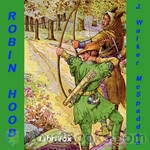 Robin Hood
Robin Hood
"Well, Robin, on what folly do you employ yourself? Do you cut sticks for our fire o' mornings?" Thus spoke Master Hugh Fitzooth, King's Ranger of the Forest at Locksley, as he entered his house.Robin flushed a little. "These are arrows, sir," he announced, holding one up for inspection.Dame Fitzooth smiled upon the boy as she rose to meet her lord. "What fortune do you bring us to-day, father?" asked she, cheerily.Fitzooth's face was a mask of discontent. "I bring myself, dame," answered he, "neither more nor less... | |
By: Mary Martha Sherwood (1775-1851) | |
|---|---|
 Fairchild Family
Fairchild Family
The adventures of Lucy, Emily and Henry are described in this short novel, written and set in Regency England. Their naughtiness, their activities and their interactions with the children next door; Miss Augusta and Charles Trueman, are all delightfully described. Their daily lives are an insight into childhood and the family and religious values at the time - each chapter has a moral lesson, and the good end happily, while the bad get what they deserve. | |
By: Frances Little (1863-1941) | |
|---|---|
 Little Sister Snow (version 2)
Little Sister Snow (version 2)
American author Fannie Caldwell, under pen name of Frances Little, tells the story of young Yuki San growing up in Japan circa early 1900s, and of her dreams of an American. (Introduction by Cheri Gardner) | |
By: Victor G. Durham (1862?-1925?) | |
|---|---|
 Submarine Boys and the Middies
Submarine Boys and the Middies
The Pollard is about to be taken to Anapolis, where the United States Navy will train their midshipmen how to run the submarine. Jack, Hal and Eph are all to help with training and to see the sights in Anapolis. They might even persuade the Navy to buy the second submarine, the Farnum. (Ann Boulais) | |
 Submarine Boys on Duty
Submarine Boys on Duty
Jack Benson and Hal Hastings arrive in Dunhaven, looking for adventure. But in a sleepy, little town, they might not find much. When they find out that there is a submarine in the shipyard, they decide that this is what they have been looking for. | |
 Submarine Boys' Trial Trip
Submarine Boys' Trial Trip
The torpedo submarine's inventor, Jack Farnum, is looking for investors to help him kick his new shipyard into high gear. He already has his crew set, with sixteen year old Jack Benson as the captain, and his friend Hal Hastings running the engines. But, there may be some changes to the crew of the Pollard on the horizon. | |
 Submarine Boys' Lightning Cruise
Submarine Boys' Lightning Cruise
Captain Jack Benson and Hal Hastings have been sailing in torpedo submarines a while now. But, there is new danger that they will have to get used to, having the actual torpedoes onboard! They will be trying out a new boat, named after Hal, with the Navy watching closely. But trouble is always close by. (Ann Boulais) | |
 Submarine Boys and the Spies
Submarine Boys and the Spies
It is a wonderful December day in Spruce Beach, FL, and everyone is waiting, waiting for something special that has been promised. The "Benson", the fast submarine built by the Pollard Submarine Boat Company, is set to arrive. But, there are more people who are interested in the "Benson" than those picnicking on the beach. Who could they be? (Ann Boulais) | |
By: Abbie Walker (1867-) | |
|---|---|
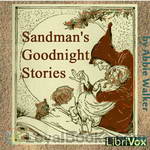 Sandman's Goodnight Stories
Sandman's Goodnight Stories
Have you every read a bed time story to a child? Or had one read to you? Fun, isn't it? These 28 delightful, short, well written and whimsical stores by the famous storyteller Abby Phillips just beg to be read aloud by adults or children. With titles like THE REVENGE OF THE FIREFLIES and SALLIE HICKS'S FOREFINGER how can you go wrong? Turn on the nightlight, tuck 'em in, settle down in the rocking chair and ... enjoy. | |
By: Emma Leslie (1837-1909) | |
|---|---|
 Sailor's Lass
Sailor's Lass
On a dark and story night, the Coombers find a little girl. Who is she? | |
By: Charles B. Cory (1857-1921) | |
|---|---|
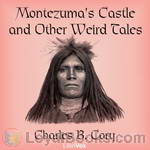 Montezuma's Castle and Other Weird Tales
Montezuma's Castle and Other Weird Tales
This is a collection of weird tales inspired from the natural history expeditions of the author, an independently wealthy bird collector, Olympic golfer, writer of many books on birds of the world, and, as evidenced in these pages, a fine storyteller to boot. | |
By: Frances Browne (1816-1879) | |
|---|---|
 Granny's Wonderful Chair
Granny's Wonderful Chair
Her most famous work, Granny's Wonderful Chair, was published in 1856 and it is still in print to this day. It is a richly imaginative book of fairy stories and has been translated into many languages. This work, read as a child by Frances Hodgson Burnett, inspired the writings of Little Saint Elizabeth and Other Stories | |
By: J. Thorne Smith, Jr. (1892-1934) | |
|---|---|
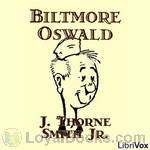 Biltmore Oswald
Biltmore Oswald
The hilarious diary of a young man's recruitment into, and service in a navy, which, though well equipped and disciplined, remains woefully ill prepared for his arrival and dubious contribution. (Introduction by Nigel Boydell) | |
By: Evaleen Stein (1863-1923) | |
|---|---|
 Gabriel and the Hour Book
Gabriel and the Hour Book
Brother Stephen has the heart of an artist and wishes to leave the abbey to travel and see the world. However, King Louis has decreed that an "hour book" be made for his bride, Lady Anne, which in turn causes the Abbott to refuse Brother Stephen's request to leave the brotherhood as his illuminations are the most beautiful, and as such, he desires that Brother Stephen should be the one to make the hour book. This decision angers Brother Stephen. Will Brother Stephen stay at the abbey and carry out his task or will he refuse and bring about a ban against him, a serious matter indeed... | |
By: Ellen C. Babbitt (1872-) | |
|---|---|
 More Jataka Tales
More Jataka Tales
The continued success of the "Jataka Tales," as retold and published ten years ago, has led to this second and companion volume. Who that has read or told stories to children has not been lured on by the subtle flattery of their cry for "more"? The Jataka tales, regarded as historic in the Third Century B. C., are the oldest collection of folk-lore extant. They come down to us from that dim far-off time when our forebears told tales around the same hearth fire on the roof of the world. | |
By: Thomas Hood (1799-1845) | |
|---|---|
 Workhouse Clock
Workhouse Clock
There were scarcely any events in the life of Thomas Hood. One condition there was of too potent determining importance—life-long ill health; and one circumstance of moment—a commercial failure, and consequent expatriation. Beyond this, little presents itself for record in the outward facts of this upright and beneficial career, bright with genius and coruscating with wit, dark with the lengthening and deepening shadow of death. | |
By: Robert Louis and Fanny van de Grift Stevenson | |
|---|---|
 More New Arabian Nights: The Dynamiter
More New Arabian Nights: The Dynamiter
More New Arabian Nights: The Dynamiter (1885) is a collection of linked short stories by Robert Louis Stevenson and Fanny Vandegrift. Three gentlemen of little means and no occupation meet in the Bohemian Cigar Divan, a tobacco shop with couches to sit and smoke. They read of a reward offered for information as to the whereabouts of a man with big moustaches and a sealskin coat. They agree among themselves that they will separate and search for the man so as to claim the reward. The stories that follow concern their adventures... | |
By: Donald Wollheim (1914-1990) | |
|---|---|
 The Secret Of The Ninth Planet
The Secret Of The Ninth Planet
An alien race has put a station on Earth and other planets in order to steal the rays of the sun, possible causing the sun to nova within two years. Burl Denning, a high school student, is the only person who has the power to stop the alien project. Can he and the crew of the experimental space ship Magellan act in time to save the earth? | |
By: Charles E. Carryl (1841-1920) | |
|---|---|
 Davy and the Goblin
Davy and the Goblin
Eight-year-old Davy reads Lewis Carroll's novel Alice's Adventures in Wonderland and begins to get very sleepy. Suddenly a goblin appears in the fire and takes Davy on a "believing voyage" much like Alice's own adventures in Wonderland, where he meets many characters from fantasy and literature. | |
By: Marcel Allain (1885-1969) | |
|---|---|
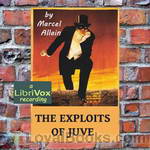 The Exploits of Juve
The Exploits of Juve
Fantômas was introduced a few years after Arsène Lupin, another well-known thief. But whereas Lupin draws the line at murder, Fantômas has no such qualms and is shown as a sociopath who enjoys killing in a sadistic fashion.He is totally ruthless, gives no mercy, and is loyal to none, not even his own children. He is a master of disguise, always appearing under an assumed identity, often that of a person whom he has murdered. Fantômas makes use of bizarre and improbable techniques in his crimes, such as plague-infested rats, giant snakes, and rooms that fill with sand... | |
By: Constance Cary Harrison (1843-1920) | |
|---|---|
 The Old-Fashioned Fairy Book
The Old-Fashioned Fairy Book
"And now, mamma, until your tea is ready, we know what you must do," said the children, in a breath. "Tell us a story—a 'real, truly' fairy tale, about a giant and a dwarf, lots and lots of fairies, a prince and a beautiful princess with hair to her very feet, a champion with a magic sword, a dragon-chariot, a witch dressed in snake-skin—and, if you can, an ogre. Don't punish anybody but the witch and the ogre; and please don't have any moral, only let everybody 'live in peace and die in a pot of grease,' at the end of it... | |
By: Heywood Broun (1888-1939) | |
|---|---|
 Seeing Things at Night
Seeing Things at Night
This Book is a collection of humorous short stories which describe the comedy in everyday things and situations. | |
 Pieces of Hate and other Enthusiasms
Pieces of Hate and other Enthusiasms
This book is a collection of humorous short stories about ordinary instances in daily life. We learn many interesting things about life, such as how to court women successfully, what it feels like to be a god, and why sometimes it would be a good idea to exchange one's own newborn baby for a better one at the hospital. | |
By: Margaret Warde (1875-) | |
|---|---|
 Betty Wales, Freshman
Betty Wales, Freshman
First published in 1904, Betty Wales Freshman is the first book in an 8 volume series that follows Betty and her classmates throughout college and beyond. It takes place at Harding in New England (NOT to be confused with the Arkansas university) based on the author's time at Smith College in Massachusetts. Some humour and frivolity ensue as well as interpersonal drama among Betty and her many peers. And of course, the usual fascination with basketball that tends to run the gamut in the bountiful supply of books about most boarding school girls. (The popularity of this series inspired product placement by a dressmakers company.) | |
By: Dandin (6th Century) | |
|---|---|
 Twenty Two Goblins
Twenty Two Goblins
These 22 stories are told by the Goblin to the King Vikram. King Vikram faces many difficulties in bringing the vetala to the tantric. Each time Vikram tries to capture the vetala, it tells a story that ends with a riddle. If Vikram cannot answer the question correctly, the vampire consents to remain in captivity. If the king answers the question correctly, the vampire would escape and return to his tree. In some variations, the king is required to speak if he knows the answer, else his head will burst... | |
By: Katherine Keene Galt | |
|---|---|
 Girl Scouts at Home
Girl Scouts at Home
Little Rosanna Horton was a very poor little girl. When I tell you more about her, you will think that was a very odd thing to say. She lived in one of the most beautiful homes in Louisville, a city full of beautiful homes. And Rosanna's was one of the loveliest. It was a great, rambling house of red brick with wide porches in the front and on either side. On the right of the house was a wonderful garden. It covered half a square, and was surrounded by a high stone wall. No one could look in to see what she was doing... | |
By: Richard Dallas | |
|---|---|
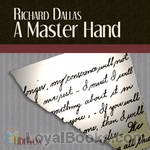 A Master Hand
A Master Hand
This murder mystery, written in 1903 by Richard Dallas (pseudonym), describes a fictional crime that took place in the New York City of 1883. A fine period piece as well as a clever detective story. (Introduction by Delmar H. Dolbier) | |
By: Jesse Lynch Williams (1871-1929) | |
|---|---|
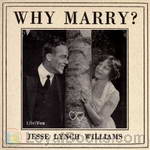 Why Marry?
Why Marry?
Why Marry? is a comedy, which "tells the truth about marriage". We find a family in the throes of proving the morality of marriage to a New Age Woman. Can the family defend marriage to this self-supporting girl? Will she be convinced that marriage is the ultimate sacredness of a relationship or will she hold to her perception that marriage is the basis of separating two lovers."Why Marry?" won the first Pulitzer Prize for Drama. | |
By: John Thomas McIntyre (1871-1951) | |
|---|---|
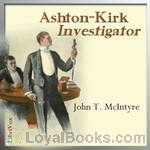 Ashton-Kirk, Investigator
Ashton-Kirk, Investigator
Ashton-Kirk, who has solved so many mysteries, is himself something of a problem even to those who know him best. Although young, wealthy, and of high social position, he is nevertheless an indefatigable worker in his chosen field. He smiles when men call him a detective. "No; only an investigator," he says.He has never courted notoriety; indeed, his life has been more or less secluded. However, let a man do remarkable work in any line and, as Emerson has observed, "the world will make a beaten path to his door... | |
By: Katharine S. Prichard (1883-1969) | |
|---|---|
 The Pioneers
The Pioneers
The Pioneers is set against the background of pioneering life in the Gippsland region of Victoria in pre-Federation Australia. Mary and Donald Cameron are free-settlers who make a home in the wilderness and grow a prosperous cattle operation that establishes their position as prominent members of the new settlement.At first, the novel privileges Mary’s perspective as she encounters escaped convicts, bush fires, and raising a son in a remote community. Later, it follows her son, Davey, as he struggles for independence against his father’s harsh authority... | |
By: Susan Edmonstoune Ferrier | |
|---|---|
 Marriage, Volume 1
Marriage, Volume 1
“Love!–A word by superstition thought a God; by use turned to an humour; by self-will made a flattering madness.” – Alexander and Campaspe. Lady Juliana, the indulged and coddled seventeen (”And a half, papa”) year old daughter of the Earl of Cortland, is betrothed by her father to a wealthy old Duke who can give her every luxury. She instead runs away and marries her very handsome but penniless lover. Very soon, they are forced to travel to Scotland to live with his quirky family in a rundown “castle” in the barren wilderness. Can this marriage survive?(Summary by P.Cunningham) | |
By: Edna Lyall (1857-1903) | |
|---|---|
 The Autobiography of a Slander
The Autobiography of a Slander
The Autobiography of a Slander exposes the consequences of reckless words or, even worse, intentionally disparaging words. In this moral tale, told from the point of view of "the slander", Edna Lyall (pseudonym used by Ada Ellen Bayley) reveals her ideals and goals in life and relationships. | |
By: Loretta Ellen Brady | |
|---|---|
 Green Forest Fairy Book
Green Forest Fairy Book
This is a volume of original fairy tales by Loretta Ellen Brady. | |
By: Rosanna Eleanor Leprohon (1829-1879) | |
|---|---|
 Afternoon in July
Afternoon in July
LibriVox volunteers bring you 14 recordings of An Afternoon in July by Rosanna Eleanor Leprohon. This was the Fortnightly Poetry project for July 7, 2013.Rosanna Eleanor Leprohon, born Rosanna Eleanor Mullins, was a Canadian writer and poet. She was "one of the first English-Canadian writers to depict French Canada in a way that earned the praise of, and resulted in her novels being read by, both anglophone and francophone Canadians."Leprohon's novels were popular in both English and French Canada in the late 19th-century, and were still being reprinted in French in the mid-1920s... | |
By: Jessie Fothergill (1851-1891) | |
|---|---|
 The First Violin
The First Violin
May Wedderburn is a quiet provincial girl, living in small and seemingly boring Skernford. Underneath the dull exterior, there is mystery, suspicion and fear in this little town, surrounding the austere local wealthy landowner who is very interested in marrying poor May. It looks as though she will have to marry him whether she likes it or not until an unsuspected alliance is formed between her and a respected old lady. They both escape to Germany where music and excitement await them. | |
By: Lenore Elizabeth Mulets (1873-?) | |
|---|---|
 Stories of Birds
Stories of Birds
This volume contains stories, poems, myths, and facts about lots of different birds, intended for teaching children. It is divided into nine parts, each covering a different type of bird. | |
By: Helen Nicolay (1866-1954) | |
|---|---|
 Boys' Life of Abraham Lincoln
Boys' Life of Abraham Lincoln
The Boys’ Life of Abraham Lincoln is a biography with many anecdotes that takes one deeper into the thoughts, personality, and beliefs of the man that was Lincoln. While the title indicates the book is about Lincoln’s life as a boy, the book is a full, if somewhat shortened biography. It is very well written and was a joy to record. One might ask, "Who was Helen Nicolay?" Her father, John George Nicolay, was Abraham Lincoln's private secretary and doubtless much of the material comes from his complete biography of Abraham Lincoln. ( | |